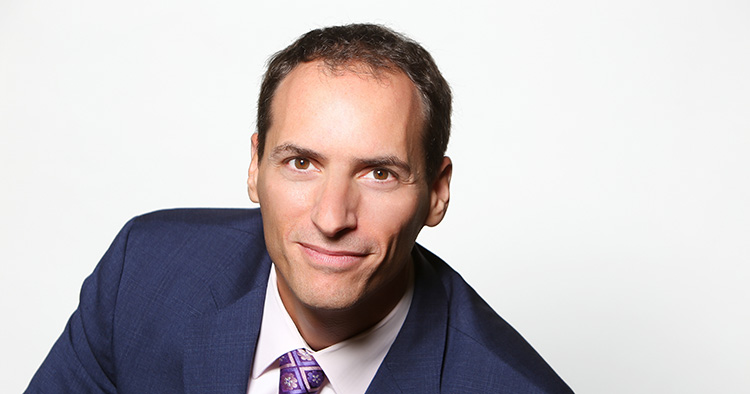Law Practice Management
Is PwC building the flexible law firm of the future?

Ari Kaplan
Ari Kaplan spoke with Marc Morant, the head of flexible legal resources at PricewaterhouseCoopers in Switzerland.
Ari Kaplan: Tell us about your background and your role at PwC.
Marc Morant: I joined PwC in January after three years at Axiom, an alternative legal services provider, where I was a general manager and the head of business development. Prior to that role, I was chief counsel for Swiss Life Global Solutions for seven years. At PwC, I am helping to build the flexible legal resourcing business for PwC Switzerland, as well as its managed legal services offering. We will also offer flexible resources in disciplines beyond legal and compliance.
Ari Kaplan: What is the mission of the company’s flexible legal resources practice?
Marc Morant: Together with our colleagues from PwC Legal, we want to build the law firm of the future and become the largest legal services provider in Switzerland by combining classic legal consulting, a flexible legal workbench extension and managed services. For many companies, the traditional models based solely on working with an internal team of specialists or a traditional law firm are not very practical because they are often too cumbersome or expensive. PwC’s flexible legal resources bridges this gap by providing an extensive and rigorously selected pool of contingent legal and compliance experts. Whether the client has to cover a temporary shortfall in resources, needs support for longer-term assignments, or requires specific outside expertise, e.g., to comply with new regulations, the client would select exactly the right people for the right environment, with the skills and attitude to get the job done. This solution is entirely flexible so the client determines whether the specialists work from home or on the client's premises, individually or in teams, on a fixed contract or for an indefinite period. Most importantly, the client chooses the expert who works under its instructions and is answering any issues directly to the client and not to partners in an external firm.
Ari Kaplan: Beyond Switzerland, where is PwC implementing this approach?
Marc Morant: Our colleagues from PwC UK are also building the same program, so we currently offer these services in Switzerland and the UK. Recently, PwC Switzerland became part of the PwC Europe network, demonstrating that there is obviously an appetite in Europe for exploring these kind of services.
See also: Should BigLaw firms worry about increasing competition from the Big Four accounting firms?
Ari Kaplan: What are the challenges associated with building the law firm of the future?Marc Morant: You need to take a holistic approach. Most of our peers either offer flexible legal staffing, traditional law firm support or managed legal services, but none of these providers align everything under one roof. Our strength is that we have a service portfolio that can combine traditional lawyering, a workbench extension, forensic teams, project management and technology know-how for the benefit of the client.
Ari Kaplan: What's changed in the legal industry that makes the use of flexible legal resources so important?
Marc Morant: The cost pressure within these legal departments globally is very high. It undoubtedly started with the financial crisis in 2008 and became quite pronounced in the years that followed. That made the classical more-for-less dilemma for general counsel more significant and prompted them to think differently about how they deliver and source legal services.
Ari Kaplan: Where do you see the practice of law headed?
Marc Morant: There are three big trends shaping the future of the legal profession. First, millennials will be the largest generation soon pursuing their professional careers in the market and they are tech and social media savvy. They are seeking jobs, building networks and interacting with clients differently. They are also seeking flexible work models. Today, classical legal employers—and that's probably not true only for lawyers—have difficulty attracting talent from this group with more traditional employment models. The changing talent market will be really important so the different models for attracting millennial talent and working with this generation needs to be developed. Second, standardized legal work is assigned more and more to contract attorneys and paralegals to provide some legal services at a lower cost. In certain instances, technology will completely replace certain tasks. This approach is fundamentally changing the way legal organizations operate with the array of emerging staffing solutions and managed legal services offerings. Third, the partnership between technology and software will generally disrupt how legal services are provided.
Listen to the complete interview at Reinventing Professionals.
Ari Kaplan regularly interviews leaders in the legal industry and in the broader professional services community to share perspective, highlight transformative change and introduce new technology at his blog and on iTunes.
Write a letter to the editor, share a story tip or update, or report an error.



